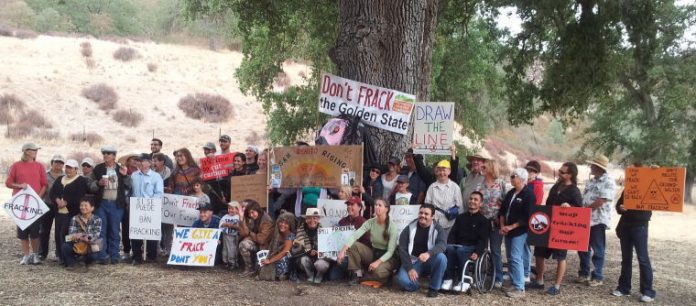
My argument here is not against the utilization of natural gases or oil; nor is it against hydraulic fracturing in and of itself. I believe that if it can be proven beyond a reasonable doubt that the process does not lead to the contamination of groundwater, the leaching of radioactive gases into the air, the reduction of property values, and an increase in both traffic and crime, then it is certainly a viable alternative to augment America’s dependence on nonrenewable energy sources. The facts as they are, however, do not support this.
The U.S. Energy Information Administration estimated in 2011 that the 1,750-square-mile Monterey Formation could yield approximately 15.4 billion barrels of oil. Yet more recently analyses have suggested the amount of oil likely to be recovered is significantly lower. So what does that mean? The absolute best-case scenario is that San Benito County is able to produce enough oil to completely support the USA’s consumption for two years. More realistically, the numbers would be close to a year’s worth. Yet as with all finite resources, once expended, they are gone forever.
In practice, each well requires an average of 400 tankers to carry water and supplies, and each fracturing job demands anywhere between one and eight million gallons of water (This is a good place to recall the increasingly severe droughts looming ahead in California’s future). This water is infused with upward of 40,000 gallons of chemicals, including such known carcinogens and toxins as lead, formaldehyde, uranium, mercury, ethylene clycol, radium and hydrochloric acid. During this process, which includes going through the 1,000-foot deep aquifers to the lower 6,000- and 15,000-foot deposits, methane gas and toxic chemicals can leach out from the system and contaminate nearby groundwater. Only 30-50 percent of the fracturing fluid used is recovered, while the rest is left in the ground and is not biodegradable. The waste from this fluid is left in open air pits to evaporate, leaching into the atmosphere that we and our children breathe. Did I also mention that fracking is exempt from both the Safe Drinking Water Act of 2005 and from state water use regulations? That does not bode well for corporate accountability.
Several earthquakes both in the U.S. and abroad have been linked to hydraulic fracturing. From Texas to Oklahoma, Ohio to England, fracking and the injection of fracking wastewater has been linked to increased seismic activity where none had previously ever occurred. Can we afford to risk an already volatile geology for a few million barrels of oil without further scientific investigation? I think not.
In addition, shale oil development is eradicating the way of life in communities across the country. Fracking jobs attract out-of-state transient workers looking for temporary employment, bringing with them increased crime, prostitution and drug use and adding burdens to law enforcement and local social services. Towns like Williston, N.D., have seen cases of theft, violence, abduction, sex crimes and domestic abuse triple. In many towns, inflationary pressures are making rents unaffordable for long-time residents, particularly affecting seniors on fixed incomes. Throughout the nation, communities are losing the close-knit character of their small towns.
I’m 27 years old and grew up in Hollister. I didn’t retire to Hollister. I have a vested interest in seeing the community remain a healthy, vibrant region for families to raise their young children without fear of contamination and crime. I want to see our great agricultural legacy continue on into the future without being poisoned by poor drilling practices. I don’t believe many of my fellow citizens would appreciate out-of-state companies and out-of-state workers coming to our hometowns and destroying them for a temporary oil fix. It’s common knowledge that the majority of companies will put profit before safety. After all, their sole purpose is to turn a profit, and that’s OK. That said, we also have an equal right to tell them, “Not in my home.” Let’s stand with the Butte County supervisors and move forward with San Benito Rising’s moratorium on fracking.
Melissa Waltzer, Hollister








